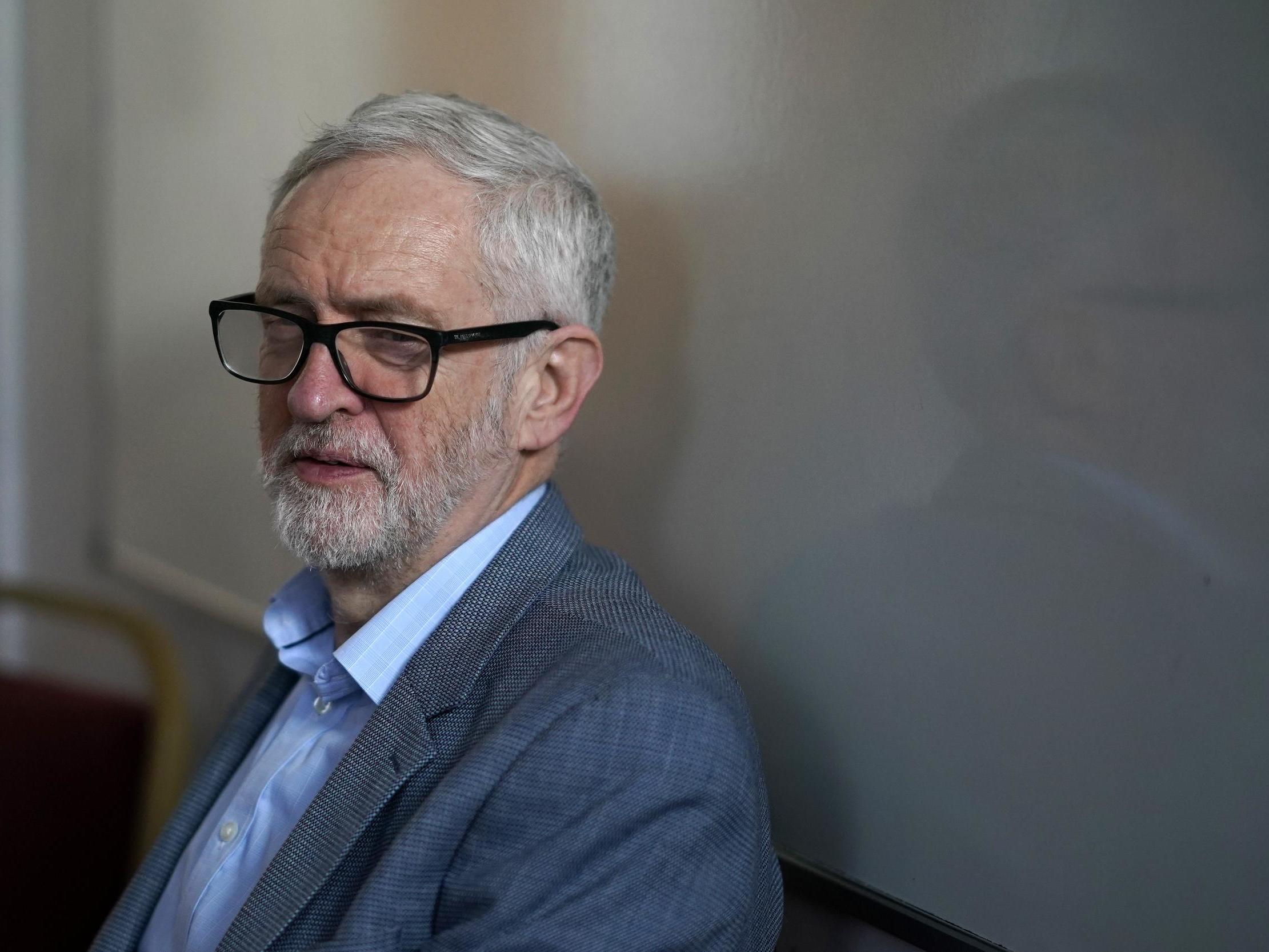Jeremy Corbyn succeeded because he was sincere – and he failed for the same reason
How did the Labour leader and shadow chancellor get to the ‘walking past each other in the corridor and blanking each other’ level of not talking, asks John Rentoul


Internal party feuds have different levels, like computer games. Apparently, Jeremy Corbyn and John McDonnell got to the “walking past each other in the corridor and blanking each other” level of “not talking” last summer.
There are only two or three levels above that. There’s the “Gordon Brown turning to face the wall during meeting” level, and then there’s the Castlereagh and Canning level. They were both members of the same cabinet, who fought a duel in 1809 (Canning missed, while Castlereagh shot him in the thigh).
It was quite an achievement by the Labour Party that the apparent outbreak of non-speakers between the leader and shadow chancellor was kept quiet at the time. We knew that they took different lines in public, especially on the question of antisemitism, but it was just about possible to think that this was a deliberate attempt to convey different messages to different audiences.
Now Gabriel Pogrund and Patrick Maguire, in their book Left Out, to be published next week, have revealed the full extent of the dysfunctionality of the leader’s inner circle. There is one paragraph in the book that reads like a Who Hates Whom of Labour’s 2019 election team. And there is a detailed account of the breakdown of relations between Corbyn and McDonnell, plainly from people who were in the room – or the corridor – where it happened.
This is all ancient history, and the party is under new management, as Keir Starmer said before parliament went into recess. But as a believer in the value of ultra-contemporary history, I think there is always something to learn from a good and well-sourced account of what just happened.
It is important, for example, to have our understanding of the politics of Corbynism confirmed by the people who were responsible for it. We could guess that Corbyn’s equivocation about Russia’s poisoning of the Skripals in Salisbury came from a view of the world divided between US imperialism and Soviet proto-socialism, but now we have it confirmed on the record by Andrew Murray, Corbyn’s adviser. He told Pogrund and Maguire: “I didn’t think the Russian state was behind it. And we were wrong. The evidence that’s emerged since is overwhelming. We misread that.”
Similarly, we guessed that Corbyn’s failure to deal with antisemitism arose from his fierce partisanship on behalf of the Palestinians and his seeming belief that the founding of the state of Israel was a mistake. Again, Murray’s candour shines through: “He is very empathetic, Jeremy, but he’s empathetic with the poor, the disadvantaged, the migrant, the marginalised … But, of course, the Jewish community today is relatively prosperous.”
This was not necessarily the source of the disagreement between Corbyn and McDonnell. McDonnell probably agrees with his long-time ally about both Russia and antisemitism, but he has a different reading of politics. He is more of a pragmatist. He would be likely to take being described as a Leninist as a compliment, because he thinks the ends justify the means.
He understood how dangerous it was for Labour to seem weak on national security, and he thought Corbyn should do and say whatever it took to get antisemitism off the front pages. According to Left Out, the cause of the breach was Corbyn’s refusal to drop disciplinary proceedings against Margaret Hodge, the Labour MP who called him an antisemite to his face.
Part of this was probably vanity and pride on Corbyn’s part. He could not stand being called a racist and thought it was cosmically unfair. But part of it was likely to be principle and belief. The qualities that carried him to the leadership, and which served him so well in the 2017 election campaign, turned into liabilities. He became leader because he had always stuck to his beliefs, and had always refused to trim those beliefs in order to win elections. Now it seemed that McDonnell, his ideological comrade, was flirting with the Blairite art of disowning core beliefs for the sake of votes.
It was not just on Russia and antisemitism that McDonnell urged pragmatism, but also on Brexit, where Corbyn ended up fighting the election advocating a second referendum but refusing to say how he would vote in it. McDonnell cut the ground from under his leader’s feet by saying he “couldn’t see a deal emerging that could beat Remain”.
McDonnell’s attempt to change course was doomed, however, because he was essentially asking Corbyn to change his personality. Corbyn couldn’t do it, and all attempts to persuade him made him unhappier and more stubborn. The inflexibility and sincerity that won him the leadership five years ago were the same qualities that lost it last year.
Join our commenting forum
Join thought-provoking conversations, follow other Independent readers and see their replies
Comments